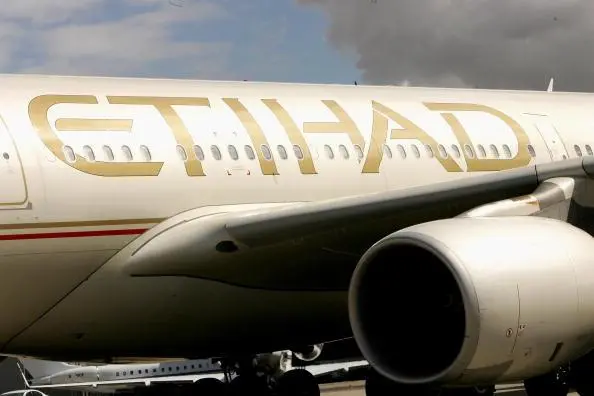PHOTO
DUBAI- The issuer of $500 million in bonds directly linked to Etihad Airways is looking at restructuring options as Abu Dhabi, which owns the carrier, has not intervened to avoid a default.
An Amsterdam-based special purpose vehicle called SPV Equity Alliance Partners (EAP) issued a $700 million bond in 2015 and $500 million bond in 2016 for Etihad and other airlines it partially owned at the time, including Alitalia and Air Berlin.
The bonds have been trading at a discount of over 25 points since last year, when Alitalia entered special administration and Air Berlin filed for bankruptcy, but the notes kept afloat because of market expectations of financial backing by Etihad, the borrower of reference under the special purpose vehicle, or by other Abu Dhabi entities.
Etihad spent billions of dollars on airline acquisitions that failed to deliver expected returns. The state-owned airline once owned minority stakes in as many as eight other carriers, and at the time of the bond issued through EAP, the notes were seen as strengthening Etihad’s partnerships with the other airlines.
The carrier, which last month reported a $1.5 billion annual loss, has been overhauling its business since 2016, replacing its top executive, dropping unprofitable routes and shrinking its fleet.
Etihad, which declined to comment, is not legally obliged to back the bonds as they have no cross-default provision, but with more than $500 million of EAP paper held by United Arab Emirates investors, some bondholders assumed Abu Dhabi would support the notes despite the insolvency of the two European airlines.
Late last week EA Partners 2, the issuer of the bonds due in 2021, announced on the Irish stock exchange that an attempt to auction for cash the defaulted obligations of Alitalia and Air Berlin, called a “remarketing” exercise, had failed as the bid that was put forward was insufficient to redeem the notes.
It said it is considering restructuring options including selling the defaulted obligations of Alitalia and Air Berlin and using the proceeds to redeem the notes at discount, or selling both the defaulted debt and the non-defaulted part of the bonds and using the proceeds to redeem all of the outstanding paper.
All the options are subject to bondholders’ approval.
Some creditors believe some sort of intervention is still possible. "In excess of 70 percent of the bond is held by Abu Dhabi based investors, whose entire participation in this complex deal hinged upon Etihad’s support," said one creditor.
"It would be more advantageous for them if noteholders voted to collapse the structure. It takes one very high profile and highly controversial bond out of the public domain, allowing them to restructure the underlying airlines with less scrutiny."
Following the issuer’s statement, the bonds lost more than 2 points, which is a significant though not dramatic drop.
"I don’t think it got any better, but I don’t think there is any less chance (of an intervention)," another creditor said.
Also, given the composite structure of the notes, the worst-case scenario would still be financially limited, he added.
(Additional reporting by Alexander Cornwell Editing by Edmund Blair) ((Davide.Barbuscia@thomsonreuters.com; +971522604297; Reuters Messaging: davide.barbuscia.reuters.com@reuters.net))





















